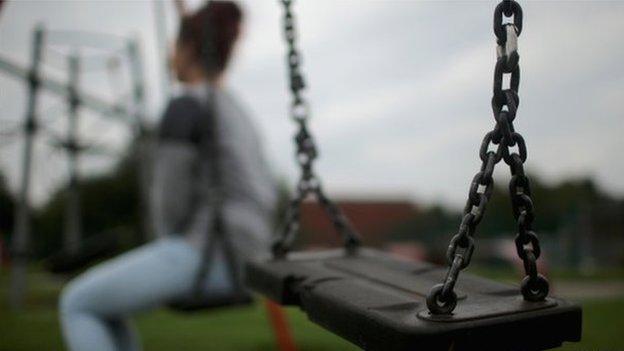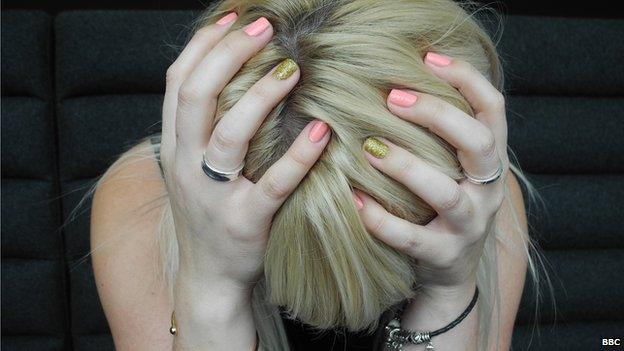Care leavers 'failed by lack of financial support'
- Published
Callum, whose surname we have chosen not to use, says that when he turned 18 he had little support to integrate back into society
Young people leaving care in England are facing financial hardship because of a lack of help from councils, according to the Children's Society.
It found almost half of councils were failing to offer financial education, which left many care leavers struggling to adapt and ending up homeless.
It has called on local authorities to offer more specialised help for care leavers' transition into adult life.
The government said it had brought in more support for people into their 20s.
Callum, 20, a father-of-one from Blackpool, left care two years ago and found there was a limited amount of support to help him adjust.
He said: "When I was in care it was amazing, but once you turn the age of 18, you automatically get put out in the big wide world.
"Yes, you have a leaving care worker, but you don't get the help how to use a washing machine, you don't get the help how to get onto benefits.
"You don't get the help to find a job, and you don't get the help to write out your CV or anything like that."
Vulnerable group
The Children's Society report - titled "The cost of being care free" - said that some 10,830 young people had left the care of their local authority last year.
It said a lack of financial education from many councils meant people leaving care without knowing how to open a bank account, pay bills or plan financially for the long term.
The charity said financial support should be a required part of the plan that is put in place to prepare a young person for leaving the care system.
It has also called for care leavers to be officially recognised as a vulnerable group so they receive an extra level of protection from the government.
The report also found that care leavers were three times more likely to have their benefits stopped than those in the general working population.
Claimants can have a sanction applied to allowances if they fail to meet certain requirements such a turning up to an interview on time.
The report found at least 3,960 benefit sanctions were applied to care leavers between October 2013 and September 2015.
But the charity said that few care leavers were aware they could challenge benefits sanctions - and that of the few who did, more than 60% were successful in overturning those decisions.
'Fend for yourself'
Callum's girlfriend Natalie was pregnant with their daughter Lola when they had their benefits stopped, which left them struggling to make ends meet.
He said: "Some nights I literally used to sit there and make sure she has a meal even if I didn't eat because I know she needed it more than me because she is not only feeding herself, she's feeding our daughter and that's one of the things I was worried about."
Michael: "They left me in a lonely situation... I'm always on my own"
Michael is one care leaver who lives on the street and described his situation as "lonely".
He said: "I have been homeless basically since I left care, you have to fend for yourself basically, and it's really hard.
"I just felt like that was me, brush him out of the way - 'It's OK, it's only Michael.' They left me in a lonely situation. I'm always on my own, I don't really have friends. I'm always on my own but that is basically the life I have lived."
Matthew Reed, chief executive of the Children's Society, said: "It is alarming that children leaving care are being failed by local authorities.
"It is the local authority's responsibility to act as a responsible parent and make sure these children are properly prepared to live independently as adults and have the skills they need to achieve this."
The government said it was committed to improving the lives of care leavers.
A Department for Education spokesman said: "We've introduced a series of reforms - including allowing care leavers to stay with their former foster carers until they are 21 and extending the entitlement to a personal adviser up to age 25 - so they don't have to face life's milestones alone."
- Published15 May 2016

- Published30 October 2015

- Published8 September 2015

- Published2 June 2015
